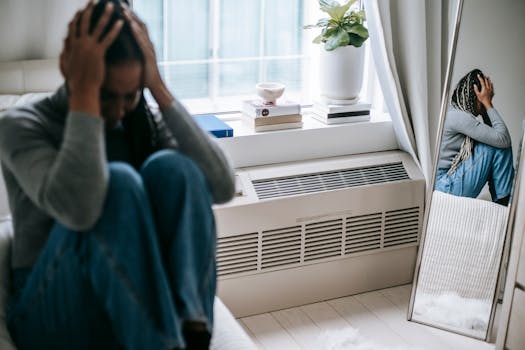
Regular Exercise for Better Mental Health: Benefits and More
Introduction to Regular Exercise and Mental Health
Regular exercise is known to have numerous benefits on mental health. Exercise, or physical activity, is any movement that enhances or maintains physical fitness and overall health and wellness. The World Health Organization recommends at least 150 minutes of moderate-intensity aerobic physical activity or 75 minutes of vigorous-intensity aerobic physical activity or an equivalent combination of both, per week. The benefits of regular exercise on mental health are numerous and significant. In this article, we will delve into the world of regular exercise and mental health, exploring the benefits, mechanisms, and practical tips for incorporating physical activity into your lifestyle.
Benefits of Regular Exercise on Mental Health
The benefits of regular exercise on mental health are vast and well-documented. Some of the most significant advantages include:
- Reduced stress and anxiety: Exercise is a natural stress-reliever and anxiety-reducer. Physical activity has been shown to decrease the production of stress hormones, such as cortisol, and increase the production of endorphins, also known as ‘feel-good’ hormones.
- Improved mood: Regular exercise has been shown to have a positive impact on mood, reducing symptoms of depression and anxiety. Exercise has also been shown to increase self-esteem and body satisfaction.
- Enhanced cognitive function: Exercise has been shown to improve cognitive function, including concentration, memory, and problem-solving ability. Regular physical activity has also been shown to reduce the risk of dementia and Alzheimer’s disease.
- Better sleep: Regular exercise can help improve sleep quality, duration, and depth. Exercise has been shown to reduce symptoms of insomnia and other sleep disorders.
- Increased self-esteem and body satisfaction: Exercise can help improve body image and self-esteem, reducing the risk of eating disorders and other body image-related issues.
How Regular Exercise Affects Mental Health
So, how exactly does regular exercise affect mental health? There are several mechanisms by which exercise influences mental health, including:
- Endorphins: Exercise releases endorphins, also known as ‘feel-good’ hormones, which are natural mood-boosters.
- Brain-derived neurotrophic factor (BDNF): Exercise increases the production of BDNF, a protein that promotes the growth and survival of brain cells.
- Cortisol reduction: Exercise has been shown to decrease the production of cortisol, a stress hormone that can have negative effects on mental health.
- Social connections: Exercise can provide opportunities for social interaction, which is essential for mental health and well-being.
Practical Tips for Incorporating Exercise into Your Lifestyle
Incorporating exercise into your lifestyle can seem daunting, but it doesn’t have to be. Here are some practical tips for getting started:
- Start small: Begin with short, manageable sessions, such as 10-15 minutes per day, and gradually increase the duration and intensity over time.
- Find an activity you enjoy: Engage in physical activities that bring you joy, whether it’s walking, running, swimming, or dancing.
- Schedule it in: Treat exercise as a non-negotiable part of your daily routine, just like brushing your teeth or taking a shower.
- Get a workout buddy: Exercise with a friend, family member, or personal trainer to increase motivation and accountability.
- Track your progress: Use a fitness tracker, journal, or mobile app to monitor your progress and stay motivated.
Conclusion
In conclusion, regular exercise is a powerful tool for improving mental health and well-being. By incorporating physical activity into your lifestyle, you can reduce stress and anxiety, improve mood, enhance cognitive function, and increase self-esteem and body satisfaction. Remember to start small, find an activity you enjoy, schedule it in, get a workout buddy, and track your progress. With regular exercise, you can take the first step towards a happier, healthier you.






